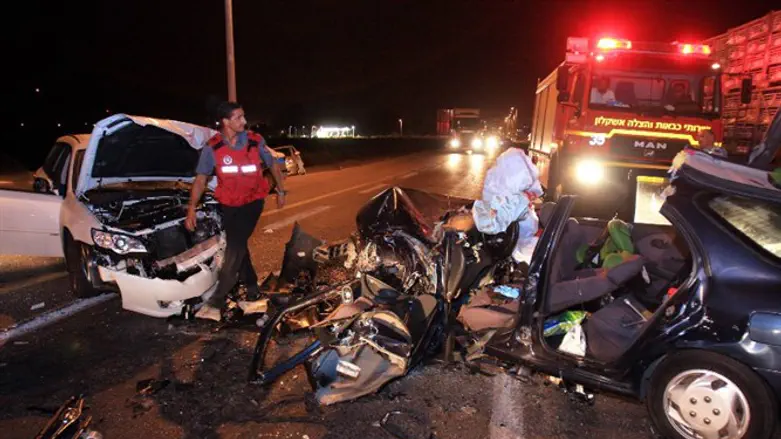
In 2019, 349 people were killed in traffic accidents, representing a rise of 10% compared to 2018, statistics from the Or Yarok Association for Safer Driving in Israel showed.
The number of traffic accidents in which at least one person was killed also rose 10%, from 286 in 2018 to 314 in 2019.
The statistics, which are based on statistics by the Central Bureau of Statistics, (CBS), showed that 230 children aged 0-14 are injured each month in traffic accidents, for an average of approximately eight children each day.
In addition, 410 youths (age 15-24) are injured each month in road accidents, for a total of approximately 14 per day.
Another 203 senior citizens (over 65 years of age) are injured each day in traffic accidents, for an average of 7 per day.
Each month, an average of 275 pedestrians are injured in traffic accidents, for an average of nine per day. Another 175 are motorcycle and scooter riders are injured monthly, which breaks down to approximately six daily. An average of sixteen bicycle riders - four per week - are injured each month in road accidents.
The percentage of Arabs injured in traffic accidents is relatively high, at 564 Arabs monthly, or an average of 19 daily.
Erez Kita, Director-General of Or Yarok, said: "The year 2019 was a year of failure in the battle to save lives on the roads. The sharp rise in the number of deaths this year is one of the largest in the past decade, and it is the direct result of the government neglect, which quietly accepts the failure. The State of Israel abandons its citizens to be killed on the road when it reduces and cuts the funds intended for saving people's lives and at the same time removes the responsibility from itself."
"Road accidents are not a decree from Heaven, they are the continued failure of the government. Many people's lives could be saved if the State took responsibility and put into practice the decisions it itself made. We must add another 200 squad cars, increase the funds for improving infrastructure at dangerous points and on 'red roads' (roads where many accidents occur - ed.), encourage the purchase of lifesaving safety devices, and other simple actions which will prevent the next person from being killed.
"It's time to stop blaming only the drivers, because statistics prove that that is simply incorrect and does not work. The Transportation and Road Safety Ministry has an obligation to place saving lives at the top of its priority list.